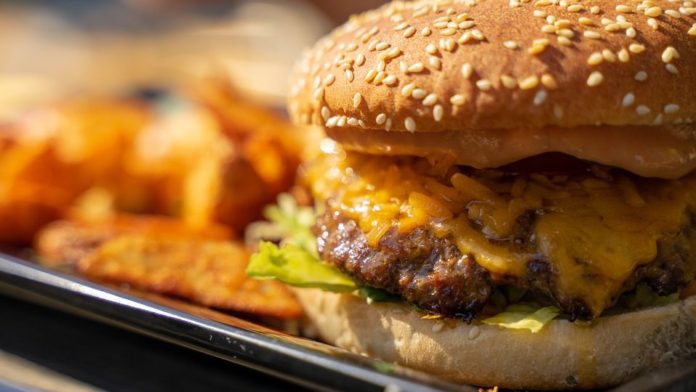When you are hungry and you have little time, what kind of food do you eat? For most of us, it depends on what is happening and what is happening (if you look at your average workspace provider or if you are walking through a US grocery store), it is likely that the treatment is ultra.
Chips, chocolate bars, sweet granola bars (almost the same), toasted and salted nuts. Junk food, pure and simple.
The ubiquity of junk food in the United States has long been a focus of attention for health advocacy groups and, of course, street food vendors. Taxes on soft drinks and pressures to “eat healthy” have the same purpose: to reduce our dependence on ultra-processed foods. They are bad for you, for your wallet, for your size, for your well-being, these groups claim it and have been demanding it for years, despite the lack of solid evidence.
Until now. In recent months, new research has begun to confirm claims that processed foods are bad for you, in ways we never imagined before. What does new research mean for your diet and well-being? We explain
What is an “ultra processed” food?
In the first place: there is a difference between minimally processed, processed and ultra-processed foods. Invented for the first time in 2009 by researcher Carlos Monteiro, professor of nutrition and public health at the University of Sao Paulo in Brazil, “ultraprocessed” foods are part of a four-part Nova scale that classifies foods according to their production.
The Nova scale is the following:
1: Unprocessed or unprocessed foods, such as eggs, edible parts of plants, pasteurized milk or ground spices.
2: Processed cooking ingredients, such as oils or butter.
3: Processed foods, such as canned vegetables, fruits packed in syrup, fresh bread or cheese.
4: Ultra-processed foods and beverages, such as soft drinks, reconstituted meats (eg, hot dogs) or frozen dinners.
In other words, according to Vox, “ultra-processed foods are created in factories, filled with chemicals and other additives for color, taste, texture and shelf life.” This treatment generally increases taste and caloric density. of food, while eliminating fiber, vitamins and nutrients. “
And why is it important for Americans in particular? Because we are too dependent on these foods.
According to a 2010 study on eating habits in the United States, which followed 9,317 participants for a year, “ultraprocessed foods accounted for 57.9% of energy intake and 89.7% of food intake. added sugars. ” more than half of its calories come from ultra-processed foods, and many of them come from added sugars.
Why is a problem? Several studies published last year may explain why this should be cause for concern.
Diets high in ultra-processed foods are being linked with weight gain.
A recent study by the National Institutes of Health, published in May 2019, found a link between diets rich in ultra-processed foods and weight gain. According to the press release,
The study followed only 20 participants, but the research was conducted in a highly controlled environment: 10 men and 10 women lived “in a designated center for four weeks,” with half of the subjects receiving a diet that included ultra-high -Transformed and the other. Half were fed poorly processed foods. After two weeks, the group plans were changed.
That means some things: the claim that “calories introduced, calories released” is all that matters, may not be as bulletproof as some people thought. It seems rather that the type of calories you consume plays a more important role in weight. In addition, those who ate the ultra-processed diet tended to eat more than those who had a low-processing diet: 500 calories per day. It is interesting to note that when asked to rate the food, the participants did not find that their ultra-processed foods were better than the less processed foods.
Ultra-processed foods are linked to an increase in numerous health problems.
Weight is not the essence of health, no matter what diets companies try to sell you. The recent NIH study on weight gain shows that these ultra-processed foods do not swim with our body, no matter how small we are. And, in fact, as Michael Hobbes writes in The Huffington Post:
And research into the health consequences of ultra-processed foods is beginning to show. Here is how
An increased risk of heart disease.
Cardiovascular disease, according to the World Health Organization, is the leading cause of death in the world and accounts for one third of deaths worldwide each year. It is also highly preventable to address the underlying causes, such as smoking or, as you guessed it, diet.
A French study, published in the BMJ last month, followed 109,159 participants aged 18 and over for an average of five years to monitor their diet and health. They found that “the consumption of ultra-processed foods is associated with an increased risk of global cardiovascular disease, risk of coronary heart disease and risk of cerebrovascular disease.” The results “remained statistically significant after adjusting several markers of nutritional quality of the diet” and taken for many variables.
This may be due to the fact that ultra-processed foods are high in calories and nutrients, but researchers have found that the link to cardiovascular disease goes “to nutritional composition”: “various ultra-processed food compounds.” Neoformed during treatment can also play a role in cardiovascular health. “
An increased risk of certain types of cancer.
This same study conducted in France also revealed a possible link between diets rich in ultra-processed foods and certain types of cancer. According to a BMJ press release, “the results show that a 10% increase in the proportion of ultra-processed foods in the diet was associated with a 12% increase in overall cancer risk and 11% increase in risk of breast cancer.
Early death
This may be evident, given the studies mentioned above, but even considering deaths unrelated to cancer and non-cardiovascular diseases, people with a diet rich in ultra-processed foods tend to: Have a higher risk of premature death.
In a Spanish study, according to NBC News, “the researchers found that, compared to participants whose diets contained the least amount of ultra-processed foods, participants whose diets contained the highest amounts had an increased risk of 62% premature death during the period of study This study also took into account factors such as sex, age, physical activity, basic BMI and smoking history. “
A possible link with the autism spectrum disorder.
Finally, and more recently, although doctors still do not know what causes autistic spectrum disorders, some recent studies have found a link between intestinal bacteria and autism, especially some food preservatives. especially propionic acid, which is found in a higher concentration in TSA. Stool samples of individuals, it is treated. A study conducted in 2017 found that the intestinal microbiota of people with ASD was different from that of neurotypic people, and new research shows that this may be related to some preservatives used in ultra-processed foods.
Researchers at the University of Central Florida found that neural stem cells highly exposed to propionic acid, called PPAs, were more likely to develop into glial cells, which, while they could “support neuronal function” can also lead to inflammation. In the brain they interrupt the connectivity between the neurons. In addition, they pointed out that PPA “damages the molecular pathways that normally allow neurons to send information to the rest of the body.”
Although the body naturally produces PPA in the intestine, the research suggests that “consumption of processed foods that may have a high rate of PPA during pregnancy may increase the levels of PPA in the mother’s intestine.” That could then be transferred to the fetus.
Why are processed foods so bad for us?

Scientists are still not sure, but research is beginning to indicate that “processed foods, with all their additives, sugar and lack of fiber, can be formulated to alter the gut microbiome, trillions of bacteria present in our intestines and two points, “according to Vox. “These disorders, in turn, can increase the risk of chronic diseases and encourage excess food.”
It is essential to keep your gut microbiome healthy because most of the bacteria is good. Our guts help us to digest food, of course, but they are also essential for the proper functioning of the immune system. It disturbs the intestines, it disturbs your whole body.
Does this mean that I have to eliminate all processed foods?
Whenever possible, avoid ultra-processed foods. Eat fresh fruits and vegetables, raw meats (ground beef instead of mortadella), whole grains, raw nuts. That said, this advice comes with a warning. Two warnings, really.
The first is that deserts and food insecurity are two very real problems in the United States that disproportionately affect people with low incomes. You can not talk about eating well without talking about who eats well. Inequality and nutrition go hand in hand, and the existence of food deserts (places where fresh fruits and vegetables and other poorly processed foods are not available and / or are affordable) means that it is impossible for many low-income Americans to avoid Ultra-processed foods, both cheap and easily available. To change this, we need to change the whole food system by supporting, for example, the Healthy Food Initiative and non-profit organizations such as The Food Trust, which manages farmers’ markets in the country’s food deserts. .
Second, if you have the means to avoid ultra-processed foods, be kind to yourself. Although you should severely limit the amount of processed foods in your diet, you do not need to cut them completely. If you take a bag of chips from time to time, it is not the end of the world. Adopting a too severe diet approach could lead to an eating disorder, especially if you begin to equate some foods with bad or even bad foods. The research shows that not only the diet does not work, with a 50-year research that shows that “95-98% of attempts to lose weight fail,” but it is difficult to cut whole groups of foods Developing a disorderly diet.
There is no inherent moral quality to the food and you are not bad if you occasionally eat a bag of Skittles. The tips such as “healthy eating” are full of baggage, a language encoded on the moral faults of people who can not cut “dirty” foods, a reality too familiar for more than 10% of Americans who suffer from eating disorders. diet.
At the end of the day, you have to eat. Maybe a little more thoughtful.







